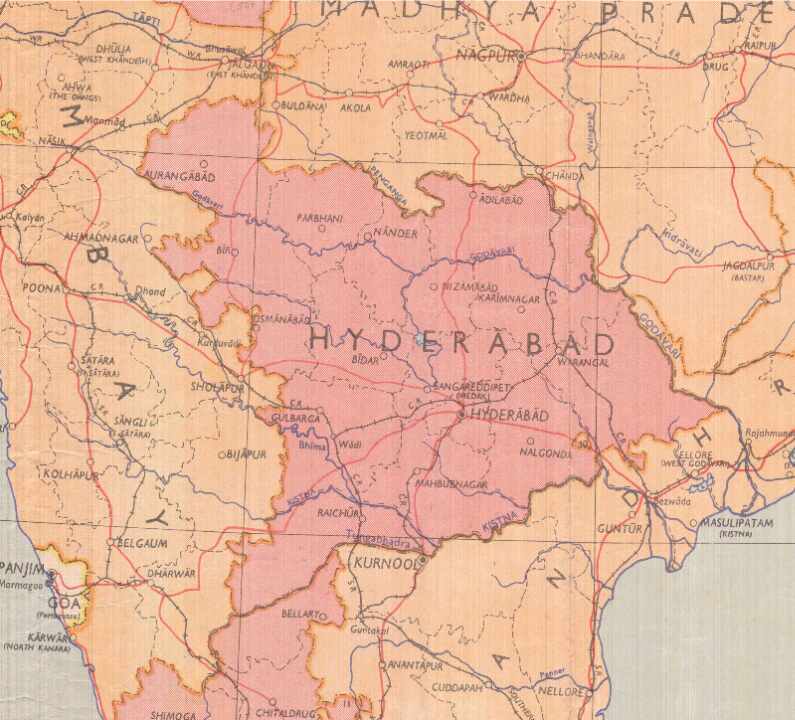The Gentlemen's Agreement!
As Hyderabad ceased to exist as a state and its Telugu-speaking region was merged with Andhra against SRC’s recommendation, grounds for separate Telangana were laid out

Even though the Hyderabad state got a popular government in 1952 under Burgula Ramakrishna Rao — a distinguished man of letters — the three linguistic groups of Marathi, Kannada and Telugu were all pulling the state in different directions. Nehru, however, was in favour of a composite Hyderabad. In his monthly dispatch (October 2, 1952) to his CMs, he wrote: "Then there is the cry for a division of Hyderabad on a linguistic basis. For my part, I am entirely opposed to this. If it is accepted, I am sure it would retard progress in Hyderabad for many long years and would create all manner of problems and upset that balance of South India…. All our Five-Year Plans and the like will have to be put on the shelf till some new equilibrium is reached". He felt that such a move would be injurious to Hyderabad and would upset the whole structure of South India.
Burgula Rao did initiate the process of land reforms and introduced Telugu in the Telangana areas but there was no organic unity in the state. The urban Hyderabadis started a 'Mulki' agitation, seeking a reservation in jobs and looked to the Nizam for support but, even though he was the titular head of the state as its rajpramukh from 1950 to 1956, Nizam had little moral or political authority over the situation.
Therefore, despite what Nehru wanted, Hyderabad ceased to exist as a state from 1956 when its Marathi-speaking region was merged with Bombay, Kannada-speaking region with Mysore, and Telugu-speaking region with Andhra state.
This was just one of the many 'map altering' recommendations of the SRC which had been notified after the death of Potti Sriramulu and the formation of the Andhra State. The commission had — apart from Fazal Ali as the chairman — members like HN Kunzru and KM Panikkar. Its report remains one of the most read government reports till date (others being the Shah Commission Enquiry and the Mandal Commission Report).
Fazal Ali was then the Governor of Orissa, and later of Assam. Kunzru had been a member of the Constituent Assembly, and is the only person ever to have declined Bharat Ratna as a matter of principle (for he had opposed it in the Constituent Assembly). Panikkar was an editor, diplomat, scholar, statesman and a Parliamentarian.
This 267-page report makes for a fascinating read, and each member of the commission, including the Chairman, gave at least one dissenting note; but the commission adopted the report when two of the three members agreed on the substantive issue in question. About the Telugu-speaking areas of Hyderabad and Andhra state, the SRC felt that not only were the two regions far apart in economic development, but Telangana was also the hinterland to Bombay, and Andhra to Madras. The land tenure and revenue systems differed widely as a result of over a century of different kinds of administrations. As such the SRC recommended that the unification of the Telugu-speaking areas of Hyderabad and Andhra should be deferred for at least five years. However, this was not accepted by the Union Government. It has thought that a united, bigger and robust Andhra would be powerful enough to address the communist insurrection in both Hyderabad and Andhra State.
To quote SRC: "One of the principal causes of opposition to Vishalandhra also seems to be the apprehension felt by the educationally backward people of Telangana that they may be swamped and exploited by the more advanced people of coastal areas."
As a via media, a Gentlemen's Agreement was signed between the leaders of Andhra and Telangana which included a 60:40 ratio in the cabinet, the reservation of the post of Deputy CM for Telangana if the CM was from Andhra, establishment of a Telangana Regional Council and reservation of posts in public services for the Mulkis (erstwhile residents of the Hyderabad). In pursuance of this Agreement, the Public Employment (Requirement as to Residence) Act was passed in 1957.
Meanwhile, the fears of the SRC were not unfounded. The coastal region was quite happy to have Hyderabad as the capital but, as their domination in the Congress party and government was quite pronounced, the terms of the Gentleman's Agreement were ignored, and within a decade, the agitation for a separate Telangana gained popular support. Telangana achieved statehood in 2014, and we shall resume the story when we come to the map of 2014!
Views expressed are personal



